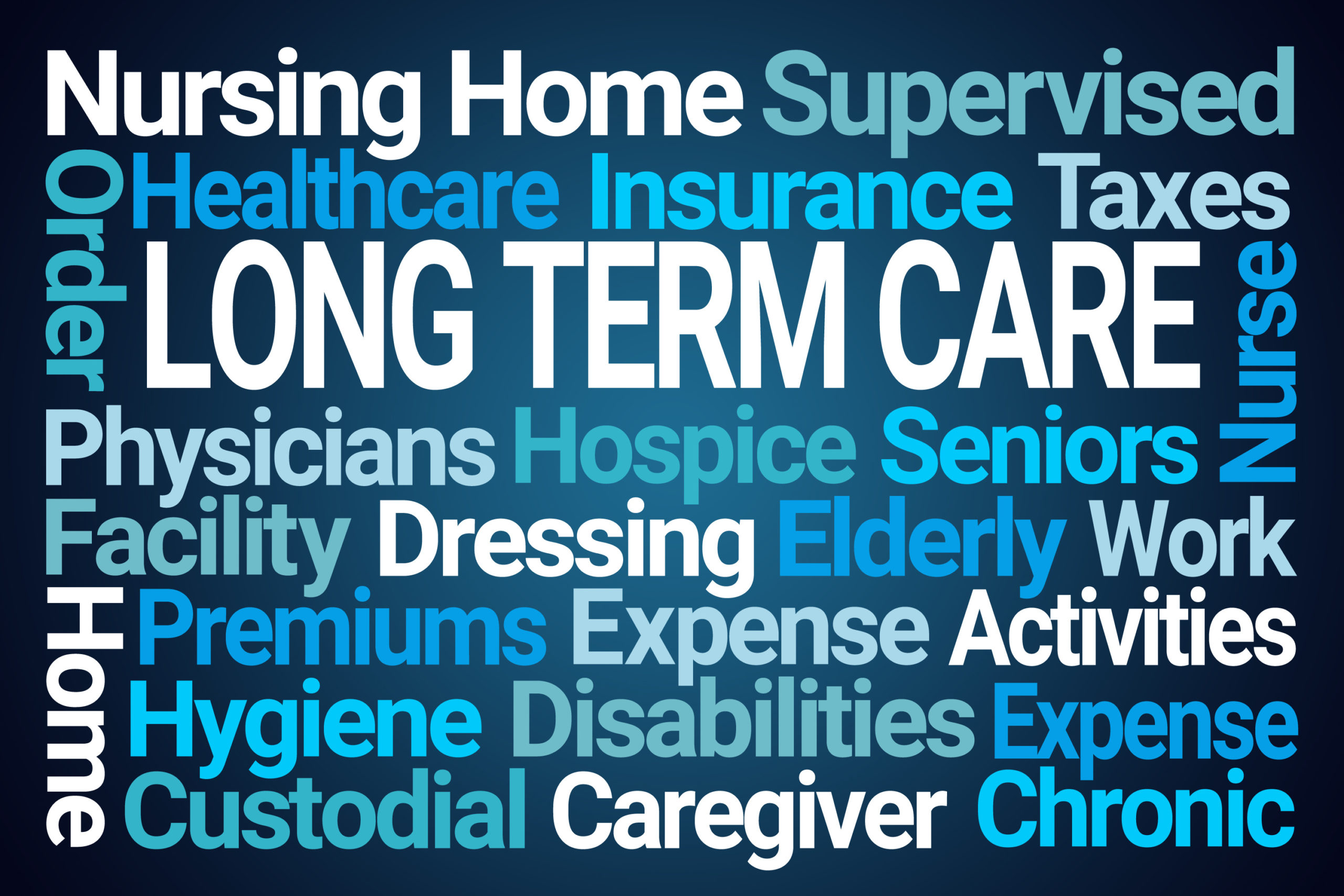
Despite the uncertainty, pain and loss associated with COVID-19 there are some opportunities that have emerged in the long-term care space as well. This ordeal is affecting us all – requiring that we slow down, re-evaluate our priorities, take care of ourselves, our families and friends, and importantly attack that closet that’s been exploding with junk! This is also a great time to re-evaluate financial and estate plans with respect to long-term care. If I or my loved one needs nursing home care or long-term care, assets will be consumed in no time. Can we do anything to prevent that?
The answer is yes, and this is the time to do it! Right in the middle of COVID-19, believe it or not, when the market is depressed.
Although it may not feel good now, we can actually take advantage of this decrease in the market by protecting assets from the cost of long-term care. How can we do this? By creating and funding an irrevocable trust now with “depressed assets” which are likely to increase in value when the market rebounds.
Let’s look at the numbers around long-term care in Massachusetts.
Nursing homes are expensive!
* According to a study conducted by Genworth in 2019, the monthly median cost of a semi-private room in Massachusetts was $12,473 and a private room was $13,212. So, roughly $150,000 per year on the low end!
* 52% of people over age 65 will require long term care/nursing home care
* 62% of all nursing home beds are paid for by Medicaid
What is the difference between Medicare and Medicaid?
In short, Medicare is the federal health insurance program designed principally for Americans age 65 years of age or older. Medicare Part A is hospital insurance that covers part of the cost of inpatient hospital care, hospice care and limited time in a skilled nursing home facility.
If you ask a Medicare attorney, What nursing home costs will Medicare cover? The short answer? Not a lot.
Medicare will cover 100% of the cost for the first 20 days you are in a nursing home IF, AND ONLY IF:
- You had a recent inpatient hospital stay of at least 3 days;
- You are admitted to a Medicare-certified nursing facility within 30 days of your hospital stay; and
- You need skilled care such as physical therapy or skilled nursing services.
If all three criteria are met, Medicare will pay 100% of the costs for the first 20 days of your stay in the nursing home. For days 21-100, you pay up to $170.50 per day and Medicare pays at least a portion of the balance. There are criteria that must be met and Medicare can end sooner than 100 days. After 100 days, you are fully responsible for the entire cost for each day that you remain in the facility.
Let’s talk about Medicaid now.
Medicaid is a federal public assistance program (MassHealth is the state program) for low income people. Medicaid/MassHealth pays for health care services for people with very low income or high medical bills relative to income and assets. Eligibility is based on income and assets.
In order to qualify for Medicaid/MassHealth as a single person, a single applicant can have no more than $2,000 in resources (this includes retirement accounts, stocks, bonds, CDs, life insurance policies with a cash value and bank accounts). Real estate that is your primary residence is exempt up to an equity value of $893,000 in 2020. Married couples can retain an additional $128,640 in assets (unless both spouses are in the nursing home).
So now what? What can we do? What’s the strategy?
Although it is not the right planning strategy for everyone, a long-term care planning strategy that is appropriate for some people to protect assets from having to be spent on long-term care costs is to create and fund an irrevocable trust. You and your long-term care attorney (and perhaps your financial advisor) will decide what assets and how much of those assets to transfer into this irrevocable trust, keeping in mind that once assets are transferred to an irrevocable trust, you cannot take them back or use those assets in any way that benefits you.
If you don’t apply for Medicaid/MassHealth for at least five (5) years after the date you transferred assets to the Trust, the entire value of the trust assets will not be included when MassHealth determines your financial eligibility (remember $2,000 for a single person and an additional $128,640 for a married couple), and will be protected for distribution to your family or intended beneficiaries following your death.
The silver lining in all of this Medicaid estate planning (and what makes this is a perfect time to implement some proactive planning) is that when the market rebounds, that gain or increase in value in your assets titled in your irrevocable trust is also protected from the cost of long term care if you apply for Medicaid/MassHealth.
So, while the stress of COVID-19 is difficult, it is also presenting a unique opportunity to capture some upside for your long-term care planning from this downturn in the market. Take advantage of this opportunity to protect your assets (or those of your loved ones), and proactively plan for the future. This will yield yet another silver living during this ongoing crisis – peace of mind and the knowledge that you will have taken a big step in protecting assets for your children, your spouse or other beneficiaries.
The Dedham firm of Samuel, Sayward & Baler LLC focuses on advising its clients in the areas of estate planning, estate settlement and elder law matters. This article is not intended to provide legal advice or create or imply an attorney-client relationship. No information contained herein is a substitute for a personal consultation with an attorney. For more information visit www.ssbllc.com or call 781/461-1020.
April, 2020
© 2020 Samuel, Sayward & Baler LLC